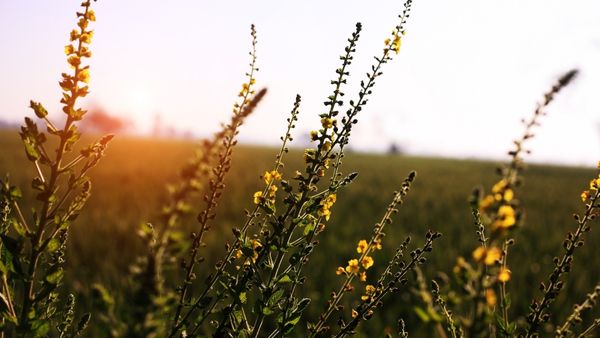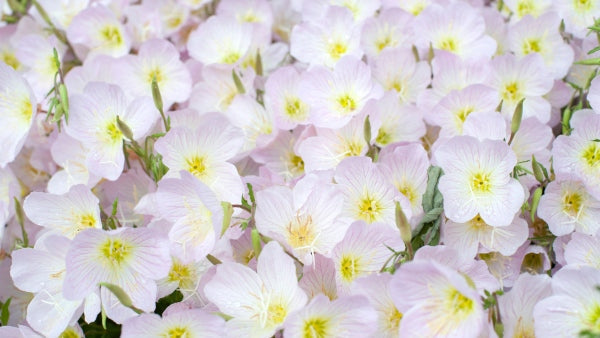Mullein | A Powerful Botanical for Skin Health

Mullein (Verbascum thapsus) is a herbaceous plant with a long history of medicinal use. A tenacious biennial indigenous to Europe, Asia and Africa, mullein is named after its soft wooly leaves (Mollis - means soft in Latin).
Praised for its restorative properties, folk medicine practitioners in India and Spain traditionally used mullein to treat aches, pains, migraines, digestive and respiratory illnesses. Brewing its bright yellow blooms into a soothing, sedative tea, mullein was used as an antiviral, analgesic, and nervine tonic. Mullein poltices were also used in indigenous medicine to help calm skin lesions and insect bites to help promote a swifter recovery.
Rich in phytonutrients like flavonoids and Vitamin C, Mulleins’s powerful phytonutrients provide the skin and body with multiple health benefits.
Read on to learn more about this nutrient-rich herb and why it's constituents make it a key player in skin recovery of all kinds.
Hesperidin
The bioflavonoid hesperidin acts as a powerful anti-inflammatory. It may suppress melanin production by inhibiting tyrosinase for a brighter, more radiant complexion. In addition, it acts as a potent free radical scavenger, protecting the skin from free radical damage and premature aging.
Quercetin
Quercetin is a flavonoid that offers protection from environmental agressors like pollution and pollen. It, therefore, acts as a skin soother due to its ability to combat inflammation and erythema. In addition, quercetin helps restores the skin barrier function, reducing trans epidermal water loss (TEWL) and increasing overall skin hydration.
Luteolin
Commonly found in many vegetables and fruits, like leafy greens and bell peppers, luteolin has many health-giving benefits. In fact, some studies have shown that luteolin may even have properties that help to prevent damage to skin structures and cellular DNA.
Vitamin C
A well known free radical scavenger, vitamin C helps combat oxidative stress, a key culprit in collagen and elastin degradation. It’s is also one of the main vitamins that is essential for collagen synthesis and therefore vital for firm, bouncy skin.
Vitamin C may also help defend against sun-induced matrix metalloproteinases or MMPs, a class of enzymes responsible for triggering inflammation that can lead to accelerated aging.
By helping to modulate the activity of pro-inflammatory cytokines, vitamin C can help calm angry skin Last but not least, some studies have shown that vitamin C also has photoprotective qualities, helping to brighten dull skin and lighten sun spots.
What do you think of this powerful herb? We believe it has the potential to elevate skincare to the next level. So much so, we've included it in our Snow Rose Recovery Mask!



